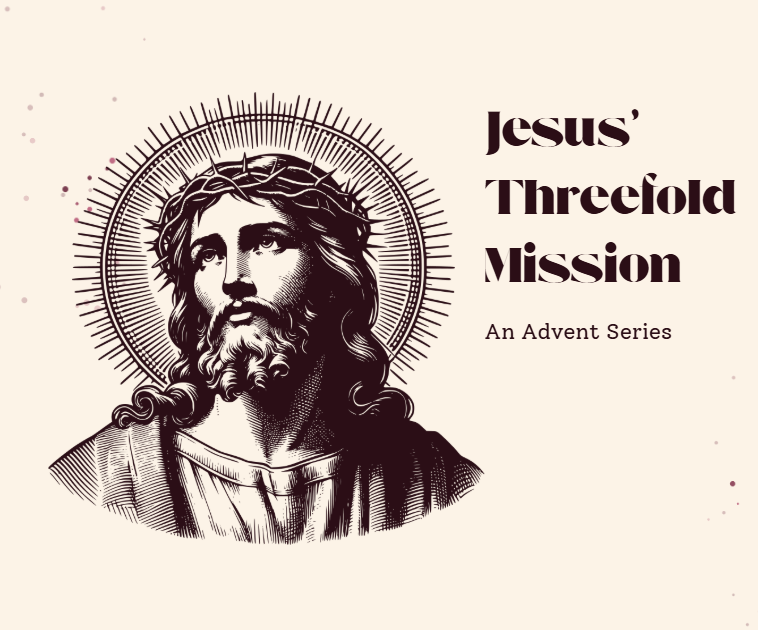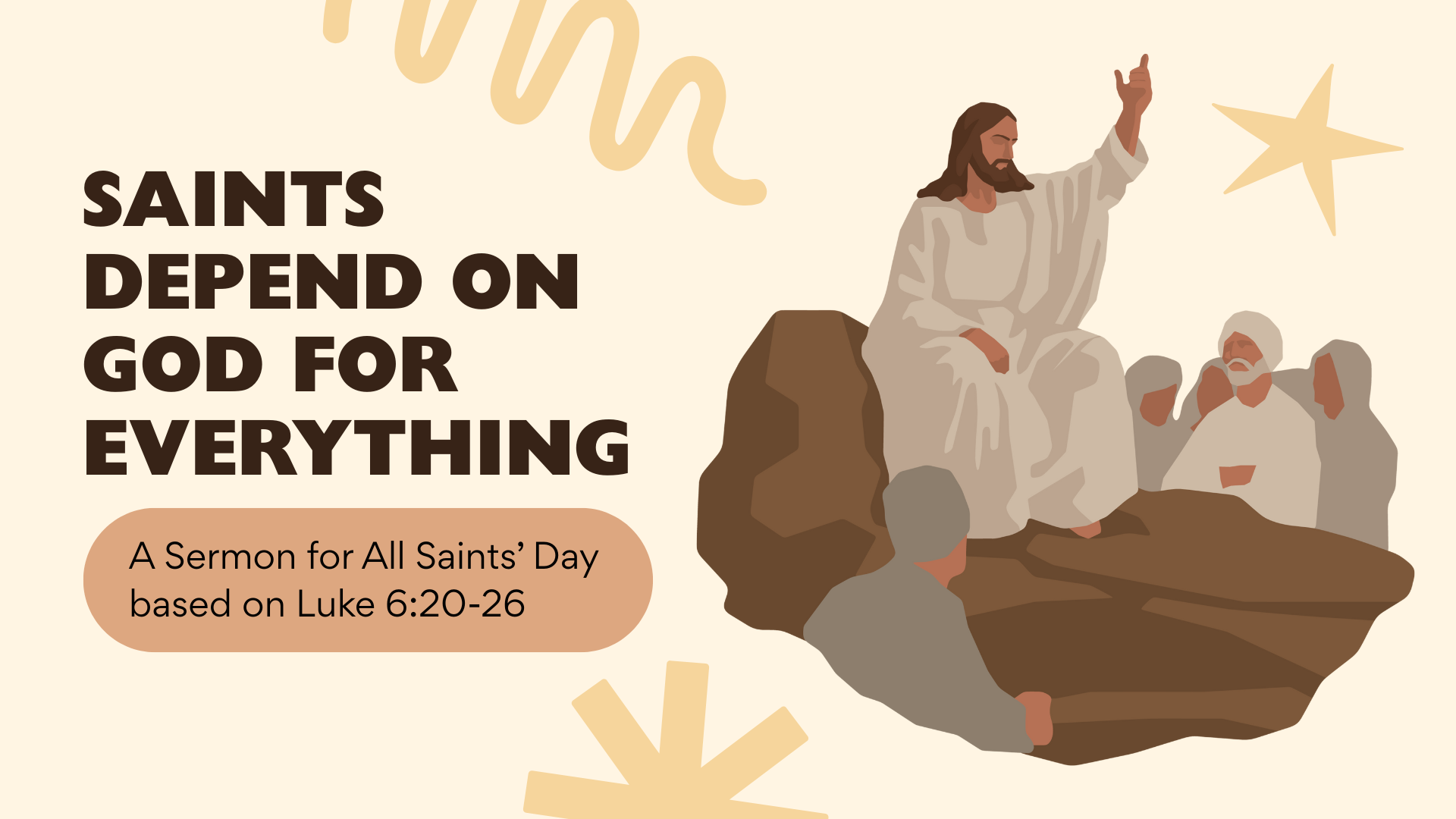Holy Thursday – Mark 14:12-26

Your picky eater skeptically scowls as he pokes at the chicken on his plate. You know what he likes. You know he would like this. You know he can’t just have mac-n-cheese every night of the week. But as he takes longer and longer to even put a shred of that chicken to his tongue, you get desperate. You command, “Just eat it!” and that’s it. Your outburst ensures he’s never going to try it. It has now become an emotional issue.
There are different schools of thought on how to handle picky eaters. Go the hard way, offering the black-and-white choice in hopes that the kid learns that a cup of peas is better than a cup of nothing. Rewards work for some people: offering a heaping helping of ice cream if they at least try what’s on their plate.
What method you handle this problem with will differ, but the problem is clear: how do you get a kid with a limited palate to accept your prediction that she will love a dish, when she seems so sure she will hate it? How do you deal with someone who is happy with their ignorance and unwilling to accept your guidance into the unknown?
How does Jesus do it here? It wasn’t a wild guess that an observant Jew would want to celebrate the Passover properly, but time was of the essence. It was the morning-of, and the disciples weren’t sure about the logistics of the situation. But Jesus has thought of this already. He gives them step-by-step instructions, that once they follow, they find out that Jesus, once again, was a hundred steps ahead of them. That’s how much he cared about this meal he would celebrate with his disciples. However, this was but the first time that day that they would see that Jesus has more information than they do.
The disciples secure the room, the herbs, the bread, the fruit, the wine, the lamb. They get to work preparing. To find the room and get everything ready took from morning to night. Then comes the time to sit and start. Now, the Passover meal had always had a set agenda. The host would take each food item, before distributing it would speak a prayer or message, and the guests would partake. Wine and lamb meat were not every-day things. The disciples’ mouths are watering. This is a joyous party that they’ve celebrated every year of their lives, and now they’re excited to celebrate it with their dear mentor.
But their smiles fade and the color drains from their faces as they hear his opening remark. Their hearts begin to pound when he uses that word, that awful word. What could Jesus have said that would have crushed their joyful spirits so much as his announcement that one of them sharing the table would betray him? And even though he sees the shock and horror in their eyes, he ruthlessly declares again that it is one who shares the intimate friendship of partaking in this most special meal who would squander that same fellowship in an act of betrayal.
One after the other they deny that they could be that one. “I will never betray you!” While there was only one Judas Iscariot, you don’t have to read too far ahead in Mark’s Gospel to realize they were exaggerating their loyalty to Jesus, as we all do. Like a groom promising faithfulness on his wedding day, not realizing that this means even when an attractive female keeps trying to catch his gaze and seeks ways to get him in private conversation. Like a soldier making promises of faithfulness to his duty, except for when there’s a high probability that if he exaggerates his back pain he can get medically discharged. Like a recently-confirmed teen who once stood here and promised faithfulness to the Word of God all her life, except for when the church her friend goes to doesn’t make as big of a fuss about closed communion or fellowship and she is drawn in by their kindness.
A picky-eating kid has the problem of not being open to new experiences that might delight and surprise him. We are picky with our truths, and it’s usually the ones that make us feel good or look good – picking truths that emphasize how loyal we are, how compassionate, how ethical our decisions are – not accepting that there’s a much darker side to being human. We are capable of much worse betrayals than we realize. It starts with defecting from the truth we’re given from the One who knows better. Even when he tells us how things are going to be, we might say, “Surely not!”
And although he is that One, Jesus doesn’t elaborate what that act of betrayal was going to be. If he outed the betrayer, maybe they would have tried to stop him, tie him up, kill him if they had to. But he won’t give any clues. Except for this one: The Son of Man will go just as it is written about him. But woe to that man who betrays the Son of Man! It would be better for him if he had not been born.”
Jesus doesn’t talk like normal people talk. That’s because he knows a lot more than your average person. Therefore, he has more to say than your average person. Your average host wants everyone at the table to be relaxed, happy, and having a good time. When Jesus is the host, he wants to serve us what is good. What is good always involves revealing what we need to know, whether or not we are too satisfied with the truths that we’ve picked to hear it.
Judas needed to hear this. Like God calling to Adam and Eve in their shameful disobedience, “Where are you?” Or to Cain, whose hands were still covered in his brother’s blood, “Where is Abel?” Jesus is calling to Judas, already well underway in his shameful plot of betrayal, as if to say, “Where are you? Where is your heart? I can see you, Judas. Your sin is not as secret as you think it is. I know you’re going to do it. In fact, it is so certain that you’re going to do this that it has become a part of an eternal plan written in the will of God, written in Scripture, but I am calling out to you, even though I know you won’t listen.”
Jesus knows more than we do. Jesus knows evil. He sees it. He hates it. He wants to get rid of it, wants us to get off the path of evil, will call out to us to repent of it and escape it whether we hear that or not. He knows evil, even meets it face to face, but is never overcome by it. He is the seed of the woman stepping out into the path to be bitten by the snake so that he can in turn crush its power over us and fulfill God’s promises of salvation. He is the mommy holding the spoon full of things we don’t understand, but calls us to trust that what he serves is good – what he says is good, even when it hurts and scares us.
And out of love, a love that understands what we do not– out of a love the goodness of which has to be tasted to be seen, he takes bread. He gives thanks, calling our attention to the gracious providence of God Our Father that sustains our lives and hearts, all according to Passover Protocol, but this is not: as the bread is broken and given, he says, “This is my body.” Brothers and sisters, steel your hearts. Keep yourself from hearing these familiar words in the comfort of their hundreds of utterances. Be as amazed as the disciples were that such a person could say such a thing about food. “This is me,” as he breaks it and gives it as fully as his body would be beaten given over to death. Given for you, as he passes his bread-body to the friends gathered in fellowship around the table.
The disciples are not comfortable in this moment. They are confused. Instead of an explanation, Jesus takes the cup. Passing a cup of wine was Passover Protocol, but this was not: “This is my blood of the covenant which is poured out for many.” Pause for a moment with the disciples at the evening they are having. Jesus is filling each person’s plate with heavenly things – revelations of God’s will and how he will use betrayal in his plan of salvation – and now, upon a holiday filled with festive spiritual hope, during a meal that thousands of worshippers are celebrating across Jerusalem, recalling the Passover lamb that saved their ancestors from death and slavery, Jesus speaks this word of covenants and blood, but not of lambs, nor bulls, nor goats, but of himself. His body and his blood are the new covenant. This new covenant of hope and peace. Of forgiveness and rescue. Of the kind of freedom that a celebrater of the first Passover could only imagine. Jesus brought it to reality. His sacrifice for all people, ratified through the faith that yoked your heart to this new covenant of God’s contract to be gracious to you and bless you and make his face shine upon you.
If you think it’s hard to get a toddler to eat a new food, how about getting a stone-cold sinful human heart to understand, love, and trust in a new unfathomable spiritual reality? That God can use evil and betrayal for good? That rescue from the dominion of the devil’s darkness is not only possible, but your new reality in Christ? That a body that goes broken to its grave is your salvation, and that blood spilled on the ground at Golgotha is a covenant with God, an eternally-binding agreement that God makes with sinners never to leave them nor forsake them, never to punish nor eradicate them?
Jesus loads up our plates with good things, but they are things we have never seen before, things we could never know unless they were fed to us. We are the hospital patient that is so weak he can’t feed himself, so he has no choice in the matter of what food is lifted to his lips. Jesus does not abuse the power of giving us whatever he wants us to eat. He fills us only with good things.
In a few moments, Jesus himself will be placed in your hands. “This is the true body of our Lord Jesus Christ, given into death for the forgiveness of your sins.” Jesus’ blood in a small cup, “Shed for you for the forgiveness of your sins.” You are not a spiritual toddler. You’ve had this meal before. You know its goodness. You know you need the medicine, because you know the lostness it saves you from – the sinful ignorance it cures, and the covenant of your Savior’s blood it ratifies.
Jesus says, “it is.” We have already become used to accepting that Jesus knows more than we, and tells us things that are hard to understand and yet true. Should we stop now? Should we question that what we receive in this Supper is anything other than his body and blood in with and under bread and wine? Would a Savior who has spoken such unfathomable spiritual truth now pause to accommodate our rational minds by saying, “It’s just a symbol guys”? Do his words, “Given for you” only apply to the cross? Do they not apply also to his continual giving of himself for our forgiveness and blessing at each celebration?
As Paul states, is this not a participation in his very body and blood, to be enjoyed as the disciples did: among a group of struggling sinners who fail and fall and are in need of strength? Is this not God’s communion with us and our communion with each other as joint-partakers in an eternal covenant of freedom and salvation?
So, the toddler tries the chicken, and immediately his eyes are opened. He is reminded of all the good things he has ever eaten, how this is the same yet so different. His trust in his mommy is ratified because he now has this extra piece of evidence that she can be listened to, that sometimes she knows things that he doesn’t, and can speak to greater realities of deliciousness than he can imagine for himself.
The table is almost ready. We are almost ready to celebrate. You are almost ready to hear those magnificent words spoken through a man but spoken by your Savior: This is my body and blood. This is the new covenant of grace and righteousness and forgiveness. And the most amazing thing that you could hear, Jesus also speaks, “I give this … for you. All this: myself, my body, my blood, faith, forgiveness, life, fellowship with me, solidarity with each other – I give it for you.”







